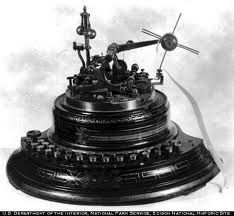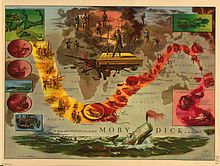First, please do not get me wrong. I am a strong supporter of solar power, either to charge your car battery or to run cities. Before we start, get the idea that I am opposed to solar power out our your mind. But solar power has it limitations.
Lately, the SOBber on the Fox “News” network (soon to have to be distinguished from The SOBber of the House of Representatives) has been adding solar generators to gold and food stashes as a way to survive the coming apocalypse in his repertoire of advertisers. I shall not use the name nor the website for the particular backyard solar firm to which his adverts refer, but will start by stating that the claims are, to say the least, overblown.
Before we start, very happy birthday wishes to the former Mrs. Translator!
As I said, I strongly believe in solar power. For some local applications, photovoltaic cells work well, when power demand is low and there is little need to “save” up energy. The principle is pretty simple, so let us explore how they work without getting too Geeky, yet!
On the other hand, photovoltaics are not a panacea for many household uses. They shine (please pardon the pun, but I just could not resist) in applications where there is a steady, low drain with only rare peak demands. And they only work when illuminated. The ones that you plug into your car cigarette lighter to keep a trickle charge on its battery work well, but are really not that useful, since your alternator does the heavy lifting.
These cells operate by using the energy in photons from the sun (or any other source) and converting this energy into increasing the energy of electrons in the cell (otherwise known as an electromotive force [EMF], or something that moves electrons). Cells on the market now are somewhere around 12% to 15% efficient (for the better ones), so most of the solar photons are unused. Since the cost of the photons is zero, efficiency is not that big of a deal. Anything from nothing is almost always a good deal for the the person who receives it.
There are various types of photovoltaic cells, the single crystal silicon ones, the polycrystalline silicon ones, and the newer thin organic film ones. The single crystal silicon ones are at present the most efficient, but they are EXPENSIVE! Those are used on satellites to harvest the energy from the sun, and in other applications here on earth. It is important to reduce weight and increase efficiency to the maximum level when sending things into space, since the cost per kilogram to fling them there is, well, astronomical. Their cost often does not justify their use in less demanding applications.
Single crystal silicon is used on the planet for some applications, but the polycrystalline ones are more common. They are not as efficient, but since surface transportation costs are lower by a factor of several millions in comparison with space transportation, they fill the bill here. They are not that cheap, either. The up and coming candidate for earthbound application is the thin film organic kind, not as efficient in photon to electricity conversion, but so cheap to produce that they can be essentially printed out with little cost. They are useful when lots of collection area is available for solar radiation.
Now, I would ask readers to add detail to my very short description of these materials. I know that I glossed over it, but I believe that the essence of my treatment of it was pretty much accurate. I do know that there are several firms that are rapidly increasing the efficiency of the thin film organic ones, and much of that is propitiatory information.
The main point of this post is to let you know that “solar electric generators”, as used by the person that runs those adverts, are not realistic. The adverts purport, with not quite saying it, that his system can take over when the power grid fails either locally or nationally. Believe me, I know what a power failure means. A couple of years ago an ice storm disrupted my electricity service for just about 45 minutes short of a full week, in the dead of winter. It was not pleasant. I wrote two pieces (here and here) on it afterwards, and here are a couple of picures that I took at the time.

This is the main power line coming into my house

Some damage in the back yard

Note that the ice was over an inch wide on this small vine
As you can see, this was a BAD storm!
If I had one of the systems that The SOBber plugs, I might have had thought that I could stay warm and that my refrigerated food would stay fresh. Well, you know that The Geek looks into figures, and that is just not the case. By the way, if you order the system from the website the The SOBber plugs, it will cost you only $1697.00 plus another $200.00 for shipping. You can also buy an extended warranty to keep it good for two years, but I chose not to go to the “add to cart” page to see how much that costs. It comes with a 90 day standard one.
Of course, you have to install it yourself. For almost $1900, before tax, I would think that sprites and spirits would do it for me. It gets even better.
When I think of “installation” of a backup electricity system, I think of integrating it into my existing system (complete with a switch that keeps electricity from “going backwards” into the power line that comes into my house. This is critical, because if you have a generator connected to your powerhead that can produce significant amounts of electricity, you are liable for manslaughter in most jurisdictions if your generator kills a power worker. You do not really install this one, you just plug your appliances into it. If you think that it will take over your powerhead from the utility coming in, you are very wrong. The installation is really more of “hooking it up” and involves setting up the panel into a frame (the online instructions are very vague about that), plugging the cord from that into the “generator”, actually a battery and voltage inverter assembly, and then plugging in your appliances into the “generator”.
I looked up the specifications, as poorly presented as they are. What I was able to find is that the unit has a lead/acid battery with a 51 ampere-hour capacity, at best. It also has five 120 volt (the specifications give anywhere from 105 to 130 volts if you dig down very deeply) outlets. Here is one big problem, to be discussed in a while. It also says that the frequency is 60 Hz, plus or minus one Hz. Our electric utilities carefully assure that the frequency of AC is 60 Hz, plus or minus 0.01 Hz or better. This has ramifications as well.
The specifications also say that the unit has an output of a modified sine wave. Almost all of our electronic devices depend on a pure sine wave, and I can tell you from the experience of many folks who have used fossil fuel powered generators, with a modified sine wave, to run their electronics that they essentially burnt them out, fatally. The power utilities supply what even my critics will agree is an almost perfect sine wave, with very little harmonic distortion. This has to do with the economics of scale, since it is very much easier to keep an extremely expensive, extremely high moment of inertia rotor, contained in an extremely expensive, very stable stator, running smoothly regardless of load demand than it is to keep a little, cheap pair running smoothly when the load demand changes. The difference betwixt a real, high power generator system and any home one for the most part is sort of like the difference betwixt how a mosquito versus an elephant performs in winds that vary from zero to 60 mph second to second.
This gets to the heart of what a voltage inverter is. The main electric plug that you have in North America is pretty much 125 volts at 60 Hertz, aka alternating current. Other countries have different standards, but in North America that is how is is. All North American electric devices are designed to run on that. A voltage inverter takes direct current and produces alternating current from it. The best of them are around 90% efficient in converting DC to AC, and the rest is lost to heat. This will become more important later.
Depending on the quality of the inverter, you may or may not get a good sine waveform. For an electric heater, the quality of the waveform is not that important, but for more delicate electronic equipment the quality of the waveform becomes important. The better inverters can provide a waveform compatible with electronics, while cheap ones can really hammer them. Even small deviations can be really, really bad for delicate electronics. Interestingly, laptop computers are somewhat immune because of the transformer that you plug into the wall smoothing out the variations somewhat, and the battery smoothing it out even more. Poor waveforms are fine for coffee makers, but not for more sophisticated things.
By coincidence, I happened to be at the electronics counter at Sears in Arkansas after the big thaw when two devastating ice storms hit in the winter of 2000 - 2001. Almost everyone there was looking to buy a new TeeVee. I began asking them what was wrong with their old ones, and they all said that they just failed with no warning. I asked further, and every person looking to buy a new TeeVee had powered it with a generator when the electricity failed. Interestingly, several home generators are now fitted with inverters to improve both the waveform and the frequency control. Older generators depend on keeping the generator shaft at a constant 3600 rpm rotational speed, regardless of changing loads. An inverter greatly reduces this strict requirement, and allows generators to operate at lower rpms, thus making them quieter.
Not so much for a TeeVee, or other electronics. Even worse is the lower limit of 105 volts for supply to refrigeration equipment. At that low voltage, it is not unusual for the motor that powers the compressor to run too slowly, or even bind up, to make the compressor fail. It gets worse, and I shall expound on that later.
I remember when my electricity service here failed (most of the people here just call it “the electric”). It was in January, and it was COLD! The ice started to freeze on power lines, and that caused a cascade of power outages over the region. Part of it had to do with the actual lines being knocked down, but another part of it had to do with the local grid being quite unbalanced, so it failed even with good lines. I can not emphasize enough how delicate our power grid is at present. The way that our grid is connected, local load imbalances can have interstate ramifications. The huge power outage several years ago in the midwest was finally traced to just a couple of limbs falling on key power lines, and that imbalance caused a cascade of outages that affected millions of customers.
Let us get specific to my situation two years ago with the huge ice storm here in the Bluegrass and make the assumption that I would have owned one of the units that The SOBber pitches. Let us further assume that I have kept the “generator” (the term used by the firm that makes is) part inside, since the efficiency of the lead/acid battery falls off sharply as temperature decreases. While it is commonly thought that chemical reaction rates increase by a factor of two with a 10 degree C temperature increase (or decrease by the same factor with a decrease in temperature), that is not always applicable. What has been demonstrated is that rates of chemical reactions (except for those catalyzed by very specific catalysts that are temperature dependent), generally slow as temperature is lowered, and increase as temperature rises. Thus, if you keep your “generator’ with its 51 ampere-hour battery out in the cold, it will not give as much power as it would at a higher temperature.
That means that I needed to cut a hole near the door, or somewhere, to feed the cable from the solar panel to the “generator” to keep is as warm as possible. No problem, just remember to caulk it so that cold air does not infiltrate. When you go to sell your house, the crafts folks can fill it in and cover it so that the potential buyer does not see it.
OK, now the “generator”, the battery and inverter, are inside. Hopefully as the battery charges, there will not be enough hydrogen gas to cause an explosion. Without going into the chemical equations, as a lead/acid battery charges, water is reduced to lead oxide and hydrogen gas. We shall assume that there is enough ventilation so that my house does not explode if I strike a match to light a candle, or a cigarette.
OK, we have the hookups done. Now I see that there is a charger for the battery that runs off of house current (henceforth called the mains) to recharge the battery. What the? I thought that this was a solar unit. Well, it turns out that the mains are more efficient at charging the battery than the solar panel is in almost all cases. OK, that is fine, I shall just use it for an emergency.
But, but, the advert says that this unit provides FREE electricity because of the solar panel! Why do I have to charge it from the mains? Well, it charges faster from the mains is why. Here are some specifics for the solar panel.
At maximum efficiency (completely clean surface, 90 degree angle to the sun), the panel provides a whopping 90 watts! That would run a 100 watt incandescent bulb, dimly. But the voltage provided by the panel is direct current, not compatible with any of your household appliances. That energy has to be used to charge the battery, and then the inverter converts it into alternating current, for which your light bulbs are designed. OK, this is getting too Geeky, but bear with me for a while longer.
Let us assume that I have aligned my solar panel to the optimum angle to get the most solar energy, and that the battery is being charged at the 90 watt maximum. Now, I am cold, since I live in an all electric house. I am not worried too much about my food ruining, since I can put it all into a cooler and set it outside to keep cold. During the ice storm two years ago, it NEVER got above around 40 degrees F, so food in a cooler outside was fine, unless it froze. Many days it never hit above freezing. My primary concern was heat, not refrigeration.
So my little solar panel would be churning out its 90 watts, and for argument let us assume that my 51 ampere hour battery was fully charged. Now I plug in my room heater (Eden Pure is a popular brand, and they work well). At full load, it pulls 1500 watts. During very cold weather, that is just about enough to keep a small room at around 70 degrees F. Well, I can live with less than that, so I decide to use only half of its output, so I live with 58 degrees and close off all of the other rooms except the one in which I shiver. Here is how long that unit would last.
Starting with a fully charged 51 Ah battery, the unit would run for just over eight hours before the battery were drained. Then it would have to be recharged. With a 90 watt input from the solar panel, it would take around 12 hours to recharge the battery, but that assumes full sun and not running the heater during the charging period. But it was rarely over freezing for the entire power outage, so my battery is not as efficient as it was. Now it takes maybe 14 hours to charge it, with no load, and I am getting colder.
That means that I have around eight hours of half load heat every day, so I am still cold and I am not running anything else but my little heater. No refrigerator, no lights, no television, no radio, no internet (I actually missed posting a What’s for Dinner? essay during that time because I had no internet since the modem needed power that I did not have). So, here I would be, in the dark, cold for 14 hours per day, and The SOBber has implied that this would be just what I needed to have no concern about power outages. Such is his honesty.
Actually, I have given just the best case. I have ignored the fact that the voltage inverter is only around 88% efficient (using the figures from the firm selling it). Thus, 12% of the energy from the battery is lost, so my eight hours of half heat is actually only just a hair over seven. Since my bedroom is far from the place that I have to put the “generator” because of the short cable from it to the solar panel, I have another 5% energy loss because of the long extension cord, so now I am down to 6.7 hours of half heat.
Since the battery is in an unheated part of the house, it becomes sluggish as well, and let us assume another 10% decrease in performance (actually, 10% in unrealistically conservative, it would be much greater). Now I am down to six hours of half heat! At least the hydrogen is far away, so the explosion hazard is limited, unless a switch in the unit itself detonates it.
But this is an ice storm scenario. As ice accumulates on the solar panel, its 90 watt output decreases because of absorption (not a lot) and reflection (a LOT!). Thus I have to put on even heavier clothes that I am wearing in my half heated room and scrape the ice from the panel. Now, I have to be careful not to penetrate the surface of the panel to prevent shorting it out as I remove the ice. Depending on the thickness of the ice, there could be up to a 50% loss in efficiency in solar conversion. Now my half powered room heater lasts three hours!
That does not even mention that by opening the door to my half heated room, I let out a significant amount of heat. To be conservative, let us say that I was really fast to open and close the door, and that only 5% of the accumulated warm air was lost. Now the half heated room has 2.9 hours betwixt charges.
Winter days are pretty dark at this latitude. It is just about 37 and a half degrees, so in January the mean sunrise to sunset duration is a little less than 12 hours. Now, we need 14 to charge the battery fully, so now I am down to 12/14, or 86% of my 2.9 hours, or around 2.5 hours of half heat! But wait!
The first and last couple of hours of sunlight are so feeble that they contribute little to what a solar cell can contribute. Let us be conservative and say that only one hour on each end are negligible. Now I can charge my cells only ten hours per day, so I have lost another 83% of half heating time, so now I am down to just under 2.1 hours of half heat. Brrrr!
Oh, I forgot! I have to go outside and realign the solar panel at least every hour to keep the angle of impingement at 90 degrees. Remember, the efficiency of solar panels is rated at a perpendicular angle to the incident sunlight. Now, that is another 10 times opening my door, letting out 5% of the warm air each time. Without going into the geometrical series, that is another 50% loss of warm air (let us be conservative and call it only 25% over the day), so now my 2.1 hours of half heat is 1.6 hours.
If I had run my thought experiment heater at full power, I would have had only 47 minutes at full power heat. This is not really helpful when the temperature outside is at freezing or below, as it was that horrible week. Realistically, I could probably have kept my room above 42 degrees F (refrigerator temperature) for three hours a day before the battery was exhausted. Then I would have been at the mercy of my bundles of layers of clothes to keep from hypothermia. By the way, I never mentioned clouds.
Let us look at this a different way, again assuming perfect efficiency of the advertised solar “generator” and its cost, and further assume that you tie it directly into your house with the proper isolation switch that would keep the utility company workers from being electrocuted if they had to work on your mains supply (by the way, there is no such switch in any of their adverts insofar as I can tell, so cough up another, say $200, but I will not take that into the calculation.)
Assuming that it generates its 90 watts, 14 hours per day, and that the battery and the inverter work at unit efficiency, AND that there are no other losses, here is what your “like having a power plant in your back yard”, to use the advert language, will cost you. Remember, this is if everything has no loss at all.
At 90 watts, in an hour you get 90 W-hours, or 21.6 kW/-hours per day. In a 30 day month, you get 648 kW-hours. This gets very interesting.
I used 637 kW/-hr in September, just pulling out the first bill to come my way. That is almost identical with the maximum, optimum output of the solar unit in question. The cost for me, after the basic meter charge of $8.02 (which you would still have to pay to your utility company even if you sell power back to them) was $50.46 (no taxes included). That comes out to 7.92 cents per kW/hr.
Let us say that my system that the SOBber pitches provided all of my power requirements (which I believe that I have already showed that it will not). My initial investment is $1897 (including shipping), so divide that by 12 to get my monthly charge for power. That comes to $158, so my charge for energy would be 24.8 cents per kW/hr. That is over three times the cost to buy power from the grid. I do not see how that would be economical to sell back to the grid.
At that rate, it would take over three years to start making money using this system, not including the inefficiencies that I have gone into in great detail. I am assuming no clouds, ice, rain, degradation of the cells or batteries and 100% efficiency of the inverter. After those are included, I am assuming at best a 50% efficiency, so now it takes over six years to start selling power back to the utility company for a profit. By then the battery certainly would be long beyond its mean lifetime before failure (MLBF), an important consideration, and the inverter is likely to have failed and needed replacement as well. The solar panel is also less efficient as time marches on, so it may be at only half efficiency by the predicted break even time.
The bottom line is not to be fooled by anything that The SOBber says or advertises, but also to examine the maths when you go to buy things. Solar water heating is extremely efficient when installed properly, and lasts for decades with little maintenance, but solar electric units are very, as they say over at home, “ticky”. When they work well, they are marginal, and when they work less than well they are a net loss. I did not even include the environmental costs of mining and manufacturing the materials necessary to fabricate them.
Once again, I am a huge supporter of sensible solar power, but backyard solar panels are a net loss. I am not even sure that photovoltaic is the way to go, because the parabolic mirror units that heat a working fluid rather than directly convert photons to EMF seem to be more mature and more efficient.
For the sake of comparison, let us consider a gasoline powered generator of the same 1800 watt rating. The nearest thing that I could find is a generator made by a very well known and respected manufacturer that provides 2000 watts. For the amount of $1150 (let us assume another $200 shipping to make it fair), you get a unit that is rated to run for 9.6 hours on a gallon of gasoline. As I recall, fuel consumption is rated at half output, so that comes to 4.8 hours at full output for a gallon. Assuming a fuel cost of $3.00 per gallon, and the same assumptions otherwise as above, here is what your power costs (and you can run your heater at full power!).
My initial investment of $1350 divided by 12 comes to $112.50 per month for a 2000 watt output. To generate the 648 kW/-hr at half load (1000 W) would take 64.8 hours. At 9.6 gallons per hour, that would take 6.75 gallons, or at $3.00 per gallon, $20.25 in fuel every month. So, $112.50 plus $20.25 comes to $132.75, as opposed to the $158 for the solar one, for a charge of 20.5 cents per kW/-hr, or 17% LESS than the “free energy” solar one advertised! Obviously, there will be repair and maintenance costs for a generator as well, but the claims that the advert for the “free power” solar “generator” make are frankly wrong and extremely misleading! Now, it still would not be economical for me to try to sell my surplus power back to my utility company at this rate, but the reputable firm that manufactures the gasoline generator never states, suggests, nor implies that this is a goal for its product.
I call out the firm advertising this product, and The SOBber for running it. However, facts have never been much of a consideration for him to say things.
This little generator will not run your cookstove (it is only rated for 120 VAC output), since your cookstove needs 240 VAC. But it WILL run your heater at half power for around 6.4 hours before you have to get out into the cold to refill it, and then it is good to go for another 6.4 hours. That is a very, very far cry from the hour and a half every day for the solar one.
This post makes me consider for next one a less Geeky but perhaps more important one about cold weather preparedness. Just because you think that because you heat with natural gas or LP that you are assured of having heat during a power outage. Let me know if that is of interest, please.
Well, you have done it again! You have wasted many einsteins of photons (that could better be making your light mill rotate!) reading this electrical post. And even though Karl Rove opens his mouth without anything derogatory to say about our President when he reads me say it, I always learn much more by writing this series than I could possibly hope to teach. Thus please keep those comment, questions, corrections, and other thoughts coming. Remember that Monday night after Keith is Review Time, so I can look up things but not tonight at Comment Time, my promise to answer off the top of my head still intact. Also remember that no science or technology issue is off topic here, so expand your comments!
Warmest regards,
Doc
Crossposted at Docudharma.com and at Dailykos.com






Recent Comments